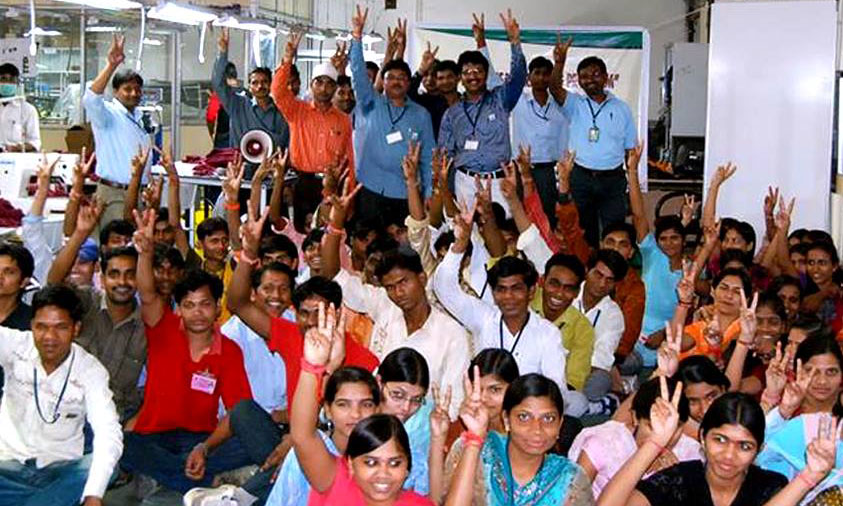
Ready To Wear: Fair Trade Group Moves From Coffee to Clothing
At a time when scrutiny of fashion industry practices are nearing a peak, Fair Trade USA's certification program for apparel is having a breakthrough moment, with a major brand—Patagonia—taking part.
At a time when scrutiny of fashion industry practices is nearing a peak, Fair Trade USA’s program for apparel is having a breakthrough moment as major brand Patagonia steps up as a partner.
If you’re in the market for some yoga gear, Patagonia is about to release a new line that comes with a few extra benefits—benefits for the workers who created them.
It’s all part of an effort by Fair Trade USA, a nonprofit certifier of fair trade products, encouraging practices that help protect workers, boost safety standards, and improve living wages. Much of Fair Trade USA’s work has been focused on food and beverage products, with coffee being one of its best-known successes. But with the sustainability-friendly Patagonia jumping on board, the movement now has a major name in the world of apparel. More details:
How it works: Fair Trade USA’s certification program includes steps to be taken at multiple points in the supply chain. At the raw materials level, the nonprofit encourages the use of seed cotton from a certified producer. Then, at the factory level, it encourages better wages and improved conditions for workers. At the end of the line, a premium of up to 10 percent is placed on the price of the product, with the money going into a worker-controlled fund to help the community as a whole through scholarship programs, disaster relief, and infrastructure improvements.
Focus on factories: Patagonia’s involvement with Fair Trade USA comes at a time when bad press over garment factories abroad have brought questionable practices and unsafe working conditions into sharp focus. In particular, an April garment factory collapse in Bangladesh that killed hundreds led to direct criticism from the Bangladesh Garment Manufacturers and Exporters Association and efforts to improve safety standards from U.S.-based retailers and clothing industry associations.
The challenge of scale: As Entrepreneur notes, however, the supply chain issues that come with such a move are significant. PrAna, another clothing company that recently decided to take the fair trade plunge, is working to improve its supply chain so it can offer more certified clothing. “It needs to scale, and we realized it wasn’t just going to scale itself. It was actually going to involve us investing in this and growing it, so that has become a key priority for us as a company,” Nicole Bassett, PrAna’s director of sustainability, told the magazine. These can prove to be major hurdles, so clothing companies generally don’t make the move toward fair trade unless they see the certification as a major plus with their customers’ demographic.
That reasoning certainly applies to Patagonia, which famously encouraged people to “buy less” in an advertisement a few years back and saw its sales increase. “This effort is part of a larger strategy to raise awareness with our customers on how they can make a difference in the world with their purchasing decisions,” said Cara Chacon, Patagonia’s director of social and environmental responsibility, in a press release.
Would you consider paying more for a shirt if you knew it was produced using fair trade practices? Tell us in the comments.
Workers at the Fair Trade-approved India factory where Patagonia's clothes will be made. (via Fair Trade USA's Facebook page)






Comments